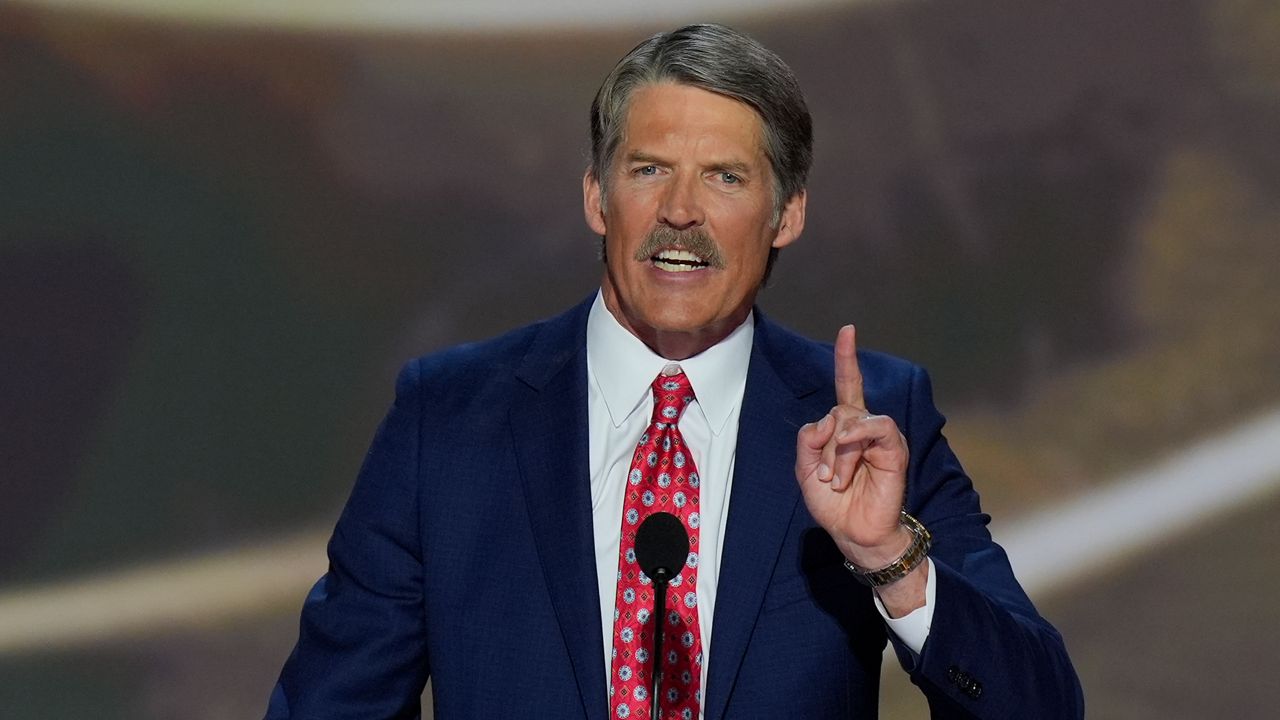MADISON, Wis. (AP) — Wisconsin Republican Senate candidate Eric Hovde has repeatedly defended his self-professed lack of knowledge about the U.S. farm bill in the campaign's closing days, after first saying in a debate that he is “not an expert” on the legislation that is vital to farmers in the state known as America's Dairyland.
Hovde's comments over the past week came after the incumbent, Sen. Tammy Baldwin, secured the endorsement of the usually Republican-aligned Wisconsin Farm Bureau, making her the first Democratic candidate for a statewide office to receive it in more than 20 years.
Both Hovde, who is backed by former President Donald Trump, and Baldwin say the race is razor thin, with possible majority control of the Senate on the line. Democrats are defending 23 seats, while Republicans have just 11 up for grabs this election.
Hovde was asked during the race's only debate with Baldwin on Oct. 18 about the farm bill and he responded, “I'm not an expert on the farm bill because I'm not in the U.S. Senate.” Baldwin has used those comments in digital and radio ads attacking Hovde, touting her Farm Bureau endorsement and saying Hovde “doesn't give a damn about farmers.”
In the week since the debate, Hovde hasn't backed down from his comment.
"Why in God’s green Earth would I know all the details in a farm bill when I’m not serving in this Senate right now?” he told reporters after he voted Tuesday.
Hovde called criticism of his debate answer “absurd.”
“I answered,” Hovde said. “I said the issue with the agricultural bill is only about 20% of it’s for farmers. I think farm bills need to get back to being for farmers, not big special corporate interests.”
In an appearance Monday on conservative talk radio, Hovde criticized questions asked during the debate that was organized by the Wisconsin Broadcasters Association.
“I’m getting a question on the agricultural bill,” he said on the Vicki McKenna show. “Like I’m supposed to have studied in depth? But I did give the answer, which is the right one. The agricultural bill is no longer a bill about farmers. They call it the farm bill, (but) only about 25% of the bill is for farmers. It’s all for big corporate interests, food stamps, everything else.”
He faulted the debate panel with asking him about the farm bill and pollution from PFAS known as “forever chemicals,” but not asking the candidates more about inflation, immigration and crime.
During a Thursday campaign stop in Eau Claire, Hovde tried to put Baldwin on the spot and said that if she were asked about what was in the farm bill, “she wouldn't have a clue.”
“For anybody to think that someone is going to know in detail everything in the farm bill — which is just a big grab bag in spending — is insane,” the Eau Claire Leader Telegram reported Hovde as saying. "I think the farm bill should get back to being for farmers.”
Baldwin, in her response during the debate, said the bill needs to provide “certainty to Wisconsin farmers.”
“They need the consistency that a farm bill has,” she said. “But one of the problems with the farm bill right now is that the House, controlled by Republicans, has written a bill that’s basically eviscerated nutrition programs. Farmers support nutrition programs because it means purchasing their goods.”
Congress passed the last farm bill in 2018. It was set to expire near the end of 2023, but Congress extended it for another year after Republicans and Democrats could not agree on reauthorization.



